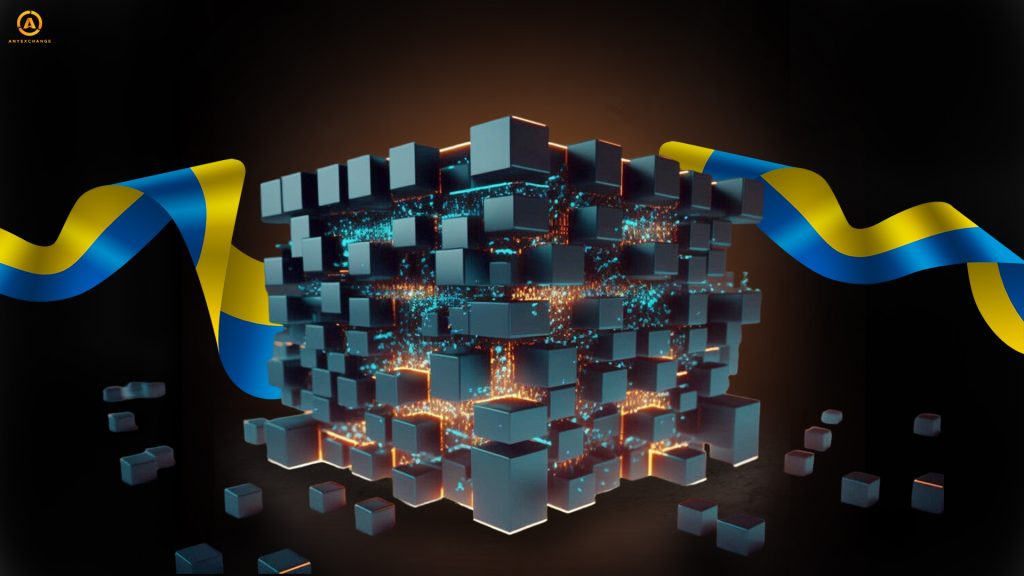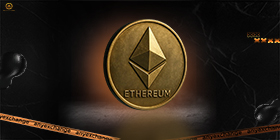
Decentralized technology continues to take over the world, penetrating every aspect of the economy, government, business, and the daily lives of the world’s population. Blockchain technology, with its enormous potential to improve and simplify the way data is stored, processed, and transmitted, is successfully transforming all kinds of industries, from the financial systems of individual countries to health care, education, and agriculture.
And our country is no exception. Blockchain technologies in Ukraine have a wide application and full support of the state in their development.
According to the Blockchain Research Institute, Ukraine is among the top 15 leading countries in the use of blockchain.
Blockchain development in Ukraine. How it all began

The formation of the community and the first systemic initiatives to develop decentralization in Ukraine started ten years ago, in 2014. At that time, the first meetings of bitcoin enthusiasts (a kind of “gatherings”) began to take place in Kyiv, where it was possible to discuss the latest news from the world of cryptocurrencies, share experiences, and buy bitcoins without intermediaries and commissions. These offline meetings, held every two weeks on Saturdays, were called Satoshi Square. It was a unique phenomenon for the post-Soviet space, bringing together traders, miners, journalists, experts, IT guys, and just people interested in bitcoin. About 10 people attended the first meetup, and they turned out to be the future backbone of the Bitcoin Foundation Ukraine.
Today, Satoshi Square is already a part of history. But it was from these amateur “bitcoin gatherings” that the first blockchain projects in Ukraine began to emerge. And already in 2017, it was possible to observe a surge in the foundation of blockchain startups in our country.
Also in 2017, the world’s first transaction to buy an apartment for cryptocurrency took place in Kyiv. An apartment on the banks of the Dnieper River was exchanged for the equivalent of $60 thousand in Ethereum after signing a smart contract, the data of which were entered directly into the real estate register of Ukraine.
In addition, two years earlier, in 2015, Ukraine launched E-Auction 3.0, a decentralized electronic auction systеm for state property. This was an unprecedented blockchain development, which became the world’s first example of the government using a decentralized systеm for the privatization and leasing of state property.
Industrial application of blockchain
The benefits of decentralized technologies are speed, transparency, accessibility, reliability, and affordability. Blockchain innovations are being actively developed in Ukraine and have received wide support from the government and business community.
Blockchain applications in the public sector
Blockchain and digital innovations create new opportunities for the digitalization of public services.
The security of blockchain technologies guarantees the protection of public registers from unauthorized interference.
The transparency of decentralized solutions that are implemented without intermediaries reduces corruption in public institutions.
The technology is helping to document rf war crimes. Specifically, Starling Lab’s Dokaz project captures and digitizes blockchain-based evidence of Russian terror. The collected data will be used to make objective decisions in international courts.
Chainalysis, a blockchain tool designed to analyze cryptocurrency transactions, tracks Russians evading sanctions. The US Internal Revenue Service (IRS) Criminal Investigations Division is sponsoring Ukrainian law officials to access the analytics company’s data, allowing them to quickly identify cases of rf hiding digital assets.
Blockchain technology is also being actively introduced into the state financial systеm, and the Ukrainian government has announced the launch of a pilot project for the NBU to issue a digital national currency (electronic hryvnia, e-hryvnia) in 2024. Specialists have already begun to register the trademark. The new virtual currency will be tested on the Stellar blockchain.
Blockchain platforms in Ukraine make it possible to quickly and without financial losses to convert and transfer cryptocurrency funds collected through fundraising for the needs of the AFU.
The Ministry of Infrastructure is working on creating a register of bus routes and launching a national travel reservation systеm (in the future also for air and rail transportation) based on blockchain technologies.
Blockchain in Ukrainian business
Blockchain in Ukrainian business is becoming more widespread every day and is currently being actively implemented in the following areas:
Banking. Blockchain gives banking institutions an opportunity to optimize their current activities. The technology makes all procedures as transparent as possible and makes them cheaper. This applies both to the current work of the offices and to the process of providing services to customers.
Retail trading. Trading platforms use blockchain innovations to track the movement of goods and their payment. A distributed ledger systеm makes it possible to track the authenticity of goods, displaying supply chains, as well as payment and delivery to the end customer. More and more Ukrainian companies are using this tool and accepting payments in cryptocurrency. Among them are offline supermarket chains, luxury boutiques, airlines, pharmacy chains, real estate agencies, real estate developers, techno markets, travel agencies, and many others.
Energy. Blockchain enables energy companies to create efficient systems for tracking energy production and consumption. The Ukrainian company DTEK is currently a member of the Virtual Assets of Ukraine public uniоn and actively participates in initiatives aimed at exploring the possibilities of implementing blockchain tools in the energy sector.
Healthcare. Decentralized tools allow optimizing chronological storage and exchange of patient data.
Education. Technology makes it easier to track attendance and grades for students and pupils. Students can log their assignments on the blockchain and always have electronic access to learning materials, as well as their diploma or certificate.
Scientific publishing and copyrights. Publishing on the blockchain can help confirm authorship. Blockchain also makes it easier to track plagiarism – information security is ensured by the ability to self-identify in the ecosystem while maintaining full control over the management of personal data. The immutability of information makes it possible to conduct fair voting without manipulation and pressure (for example, in the defense of theses and dissertations).
Logistics. Distributed registry technologies are used in logistics chains to solve problems of document flow, search for an optimal route, track cargo movement, verify its authenticity, promptly respond to any changes, track payments, and resolve disputes. The use of blockchain and smart contracts makes it possible to completely eliminate document processing costs (they usually account for 10-15% of the cost of delivery), thus reducing the overall cost of logistics.
Agriculture. Large agricultural holdings have realized the prospects this technology can offer and have gradually begun to implement it into their production processes. Blockchain allows agribusinesses to create a transparent chain of production and delivery of products, guaranteeing food safety for the consumer and cost savings for the producer. Customers want to know the history of the product’s origin, and a QR code on the product will allow them to read all the true data about it. The entire history of the product will be displayed on the smartphone screen.
The future of blockchain in Ukraine

Ukraine has joined the European Blockchain Partnership, which will accelerate the integration of the digital economy of our country and the EU. This interaction will speed up the work on introducing the technology into government services and will contribute to the creation of an effective regulatory environment in the market of virtual assets.
Ukraine is a promising territory for the R&D offices of international companies. The high level of engineering and mathematical education, the availability of highly qualified scientific and IT specialists, as well as a developed crypto community create optimal conditions for the development of innovative solutions with the involvement of Ukrainian labor resources.
Decentralized technologies are developing every day. Blockchain allows the establishment of reliable and transparent relations between the participants of any systеm, and is successfully integrated into various branches of business and public administration, increasing the efficiency of all related processes. And Ukraine has every opportunity to confidently move in this direction at the global level.
Thank you for your attention to our article. AnyExchange is a multi-currency exchanger , which allows you to convert the most popular cryptocurrencies. With us, you can exchange digital assets for electronic or cash at the most favorable exchange rate .
Money transfers worldwide are also available on the website.









